Bad breath, medically known as halitosis, is a common issue that affects people of all ages. While it’s often thought…


Bad breath, medically known as halitosis, is a common issue that affects people of all ages. While it’s often thought…
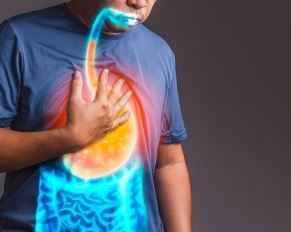
Most people know it as ‘heartburn,’ but the medical term for it is gastroesophageal reflux disease (GERD). GERD is a…

Bad breath, medically known as halitosis, is a common problem that affects many people. It can be caused by a…

According to the Centers for Disease Control (CDC), “Obesity is common, serious, and costly.” The CDC’s website reports that more than one third of all American adults are obese, adding that “obesity-related conditions such as heart disease, stroke, type 2 diabetes, and certain types of cancer can be prevented.” Pretty shocking to think that many of these diseases are largely preventable when obesity is overcome. The cost as well is shocking, as the CDC reports that the estimated annual medical cost of obesity in the United States is close to $150 billion. Sadly, these statistics do not surprise top gastroenterologists. If you are facing obesity-related health problems now or in the future, you may be considering weight loss surgery, but you may also be reluctant to take such drastic measures. Clearly, invasive weight loss surgeries are not for everyone. Thankfully, there are newer, noninvasive weight loss procedures.
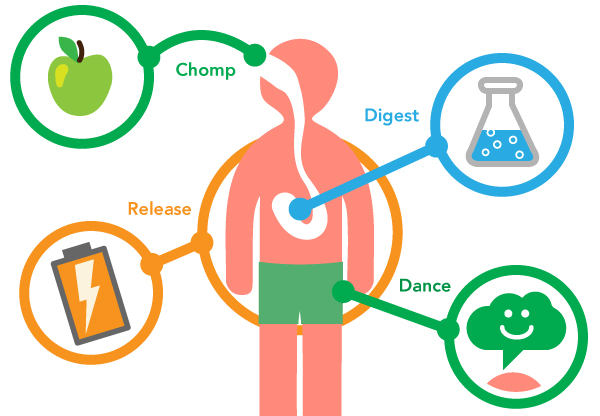 Metabolism. We’ve all heard of it, and we’ve likely all talked about it. We may even know if ours is slow or fast. But how much do we really know about metabolism? If you were asked to explain it, could you? Does it even matter if you know anything or nothing at all about your metabolism? Actually, knowing how your metabolism works can help you to make better choices in your diet and exercise routine. It can even help you to decide what kinds of exercise and foods will work best for your particular metabolism. The simple answer to the above question is: metabolism is the rate at which your body can process the foods you consume. Of course, there’s a lot more to it, and the more you know, the better off you, your body, and your fitness results will be. Here’s some info from gastroenterologists in Queens on the subject of metabolism. A top GI doc near you can help you to understand how metabolism works and how to use this to achieve results you desire.
Metabolism. We’ve all heard of it, and we’ve likely all talked about it. We may even know if ours is slow or fast. But how much do we really know about metabolism? If you were asked to explain it, could you? Does it even matter if you know anything or nothing at all about your metabolism? Actually, knowing how your metabolism works can help you to make better choices in your diet and exercise routine. It can even help you to decide what kinds of exercise and foods will work best for your particular metabolism. The simple answer to the above question is: metabolism is the rate at which your body can process the foods you consume. Of course, there’s a lot more to it, and the more you know, the better off you, your body, and your fitness results will be. Here’s some info from gastroenterologists in Queens on the subject of metabolism. A top GI doc near you can help you to understand how metabolism works and how to use this to achieve results you desire.
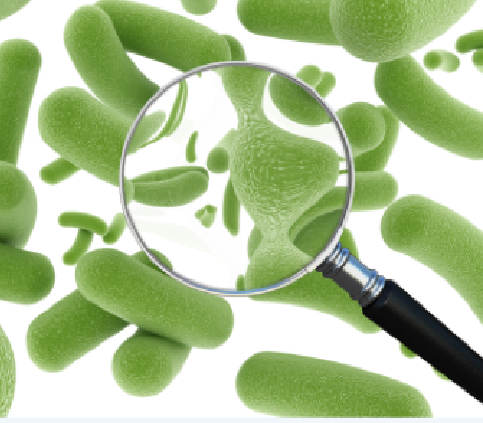 The most succinct definition of the ‘Microbiome’ is the entirety of microorganisms and their accompanying genetic material that we have in our bodies. Wait–is there that much microorganism activity going on in our bodies that there’s a whole separate word for it–not to mention world encompassing it? Absolutely. In fact, in the breakdown of cells making up the human body, you might say we humans are about 90 percent inhuman! A better explanation of that statement would be that the human body includes literally trillions of microorganisms and their combined genetic matter. And therein lies the Microbiome. Following is more detailed information about the fascinating world of the Microbiome that will help you better understand the Microbiome and what it has to do with your health.
The most succinct definition of the ‘Microbiome’ is the entirety of microorganisms and their accompanying genetic material that we have in our bodies. Wait–is there that much microorganism activity going on in our bodies that there’s a whole separate word for it–not to mention world encompassing it? Absolutely. In fact, in the breakdown of cells making up the human body, you might say we humans are about 90 percent inhuman! A better explanation of that statement would be that the human body includes literally trillions of microorganisms and their combined genetic matter. And therein lies the Microbiome. Following is more detailed information about the fascinating world of the Microbiome that will help you better understand the Microbiome and what it has to do with your health.
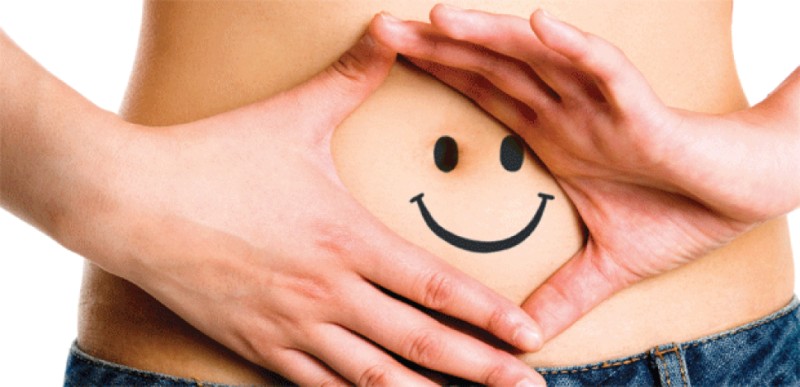 Good digestion is vital to good health. Your digestive system is important because it’s where important nutrients your body needs to thrive are absorbed. Sadly, digestive problems have been on the rise ever since the food manufacturing industry learned to process foods for more bulk and longer shelf life. The modern American diet is sorely lacking in means of keeping our digestive systems working optimally. Processed foods can spike blood sugar, and they often contain little nutritional value. Additionally, today’s busy families often don’t sit down to dinner together for what used to be known as a ‘home-cooked meal.’ What often results is parents and children alike often reaching for quick foods that are ready fast and don’t provide nutrients necessary to keep the digestive tract, as well as all the other systems of the body, healthy and functioning properly. In fact, processed foods that are bad for digestion rarely are satisfying for the simple reason that they provide no value to your body, making you consume more and more of them to feel full. Following are some valuable recommendations from GI doctors in Flushing on how you can improve your digestion and begin feeling better almost instantly! For more help with your digestion contact a top GI doctor near you.
Good digestion is vital to good health. Your digestive system is important because it’s where important nutrients your body needs to thrive are absorbed. Sadly, digestive problems have been on the rise ever since the food manufacturing industry learned to process foods for more bulk and longer shelf life. The modern American diet is sorely lacking in means of keeping our digestive systems working optimally. Processed foods can spike blood sugar, and they often contain little nutritional value. Additionally, today’s busy families often don’t sit down to dinner together for what used to be known as a ‘home-cooked meal.’ What often results is parents and children alike often reaching for quick foods that are ready fast and don’t provide nutrients necessary to keep the digestive tract, as well as all the other systems of the body, healthy and functioning properly. In fact, processed foods that are bad for digestion rarely are satisfying for the simple reason that they provide no value to your body, making you consume more and more of them to feel full. Following are some valuable recommendations from GI doctors in Flushing on how you can improve your digestion and begin feeling better almost instantly! For more help with your digestion contact a top GI doctor near you.
 Is your colon happy? Yes, you read that right. The question was: Is your colon happy? Think about it. You spend so much of your time making sure you’re building a happy home, a happy family, a happy childhood for your kids. You worry if your boss is happy with your work. You may even wonder if your bank account is happy. But you likely never think about whether your colon is happy. But the truth is when your colon is unhappy, you’re unhappy. But it doesn’t have to be that way. In fact, there are a number of steps you can take to ensure that your colon is healthy. And the great thing about colons is that when they’re healthy, they’re happy. Here are some valuable tips from gastroenterologists in Queens that can help you turn your colon’s frown upside down.
Is your colon happy? Yes, you read that right. The question was: Is your colon happy? Think about it. You spend so much of your time making sure you’re building a happy home, a happy family, a happy childhood for your kids. You worry if your boss is happy with your work. You may even wonder if your bank account is happy. But you likely never think about whether your colon is happy. But the truth is when your colon is unhappy, you’re unhappy. But it doesn’t have to be that way. In fact, there are a number of steps you can take to ensure that your colon is healthy. And the great thing about colons is that when they’re healthy, they’re happy. Here are some valuable tips from gastroenterologists in Queens that can help you turn your colon’s frown upside down.
 Food allergies are on the rise, both in the United States and around the world. In fact, researchers estimate that upwards of 15 million Americans suffer from food allergies. According to the Centers for Disease Control and Prevention, food allergies among children increased by nearly 50% from the years 1997 to 2011. This swift rise in the number of people suffering from one or more food allergies is baffling to researchers, although many believe that modern chemical processes used to keep foods fresher longer play an important role. What’s most alarming is that this statistic is ever on the rise. If you’re one of the people who are suffering from a food allergy, you understand the significance this health condition can have on your lifestyle. Following is valuable information from top gastroenterologists in Queens that can help you better understand your food allergy and its affect on your body. If you have a food allergy or think you may be allergic to something you’ve eaten you should contact a GI doctor in Queens today.
Food allergies are on the rise, both in the United States and around the world. In fact, researchers estimate that upwards of 15 million Americans suffer from food allergies. According to the Centers for Disease Control and Prevention, food allergies among children increased by nearly 50% from the years 1997 to 2011. This swift rise in the number of people suffering from one or more food allergies is baffling to researchers, although many believe that modern chemical processes used to keep foods fresher longer play an important role. What’s most alarming is that this statistic is ever on the rise. If you’re one of the people who are suffering from a food allergy, you understand the significance this health condition can have on your lifestyle. Following is valuable information from top gastroenterologists in Queens that can help you better understand your food allergy and its affect on your body. If you have a food allergy or think you may be allergic to something you’ve eaten you should contact a GI doctor in Queens today.
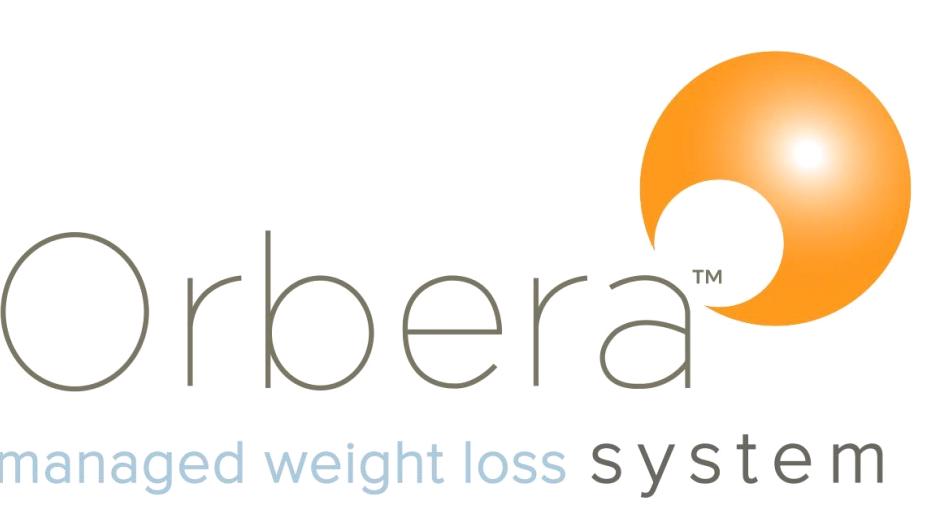 An intragastric (or gastric) balloon is an inflatable medical device used to aid in weight loss. In a non-invasive medical procedure, the intragastric balloon is placed into the stomach on a temporary basis in selected obese or overweight patients when diet and exercise have failed. One such device is the ORBERA Intragastric Balloon, which is made of soft silicone. The ORBERA Intragastric Balloon can be beneficial to patients because it stays in the stomach temporarily, about six months, during which time it encourages a patient to eat a healthier diet. Following is more information from top gastroenterologists in Queens regarding the ORBERA Intragastric Balloon that may assist you in making an informed decision concerning this noninvasive weight loss surgery. If you are interested in learning more about non invasive weight loss procedures contact a gastroenterologist near you.
An intragastric (or gastric) balloon is an inflatable medical device used to aid in weight loss. In a non-invasive medical procedure, the intragastric balloon is placed into the stomach on a temporary basis in selected obese or overweight patients when diet and exercise have failed. One such device is the ORBERA Intragastric Balloon, which is made of soft silicone. The ORBERA Intragastric Balloon can be beneficial to patients because it stays in the stomach temporarily, about six months, during which time it encourages a patient to eat a healthier diet. Following is more information from top gastroenterologists in Queens regarding the ORBERA Intragastric Balloon that may assist you in making an informed decision concerning this noninvasive weight loss surgery. If you are interested in learning more about non invasive weight loss procedures contact a gastroenterologist near you.